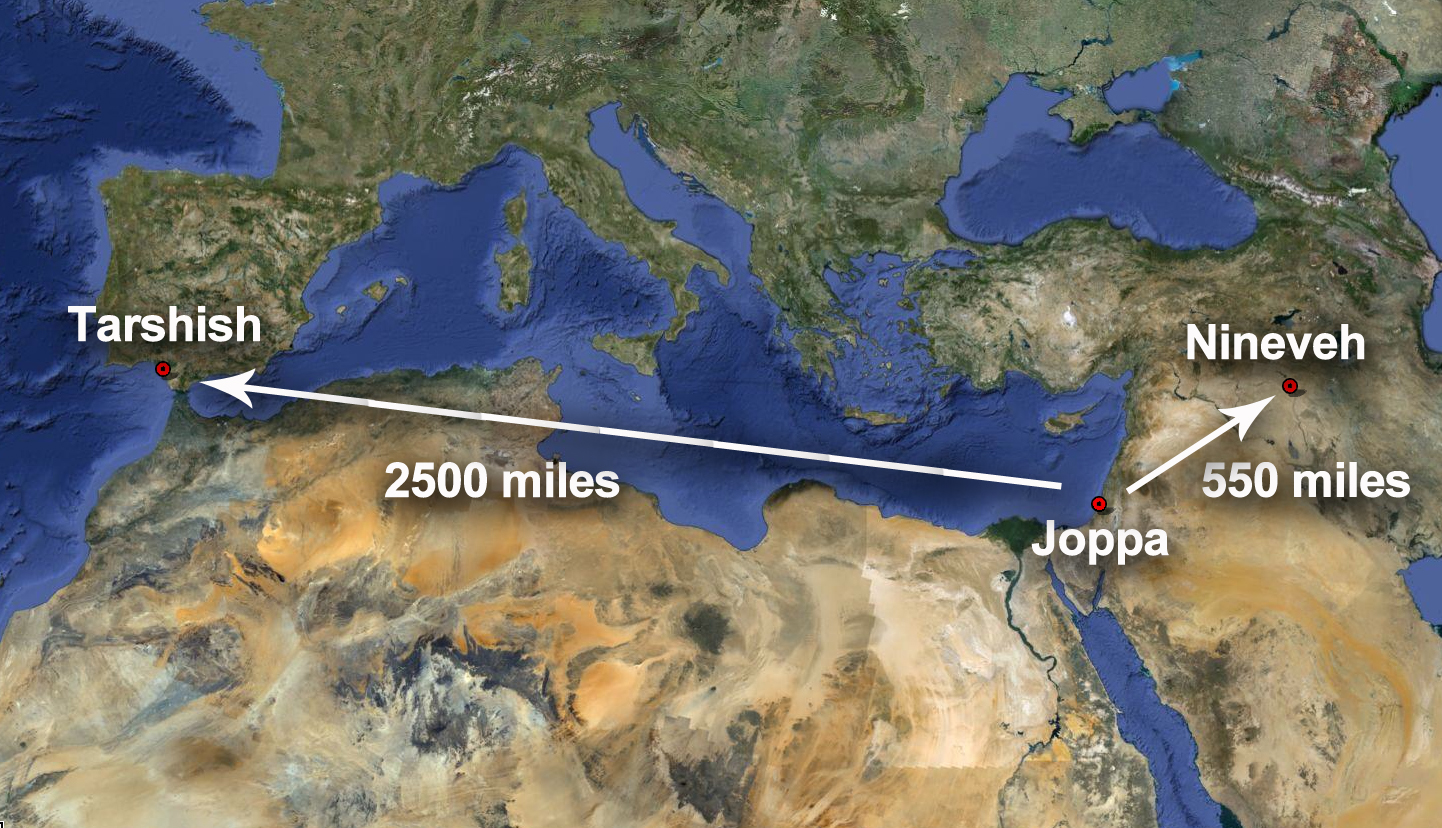
Now the word of the LORD came unto Jonah the son of Amittai, saying, (Jonah 1:1)
In Biblical times, God often revealed His will to certain individuals, prophets, who would, in turn, relay that divine message to others (See also Hosea 1:1; Micah 1:1; Zephaniah 1:1). In this instance, that prophet was Jonah. Who was Jonah?
Verse 1 tells us that Jonah was the son of Amittai. Besides this simple statement, we know very little about Jonah from this particular book of the Bible. However, three other books of the Bible mention him: 2 Kings 14:25; Matthew 12:39-41, 16:4; and Luke 11:29-32.
According to 2 Kings, Jonah was from Gathhepher, a city in the tribal lands of Zebulun between the Sea of Galilee and the Mediterranean Sea (Joshua 19:13). This area is located within the ancient kingdom of Israel after it had split from the Southern Kingdom of Judah (See 1 Kings 12:16-19).
Jonah prophesied during the reign of Jeroboam, son of Joash, king of Israel. Although Jeroboam was a wicked king, he obeyed God’s word through Jonah. He restored some of Israel’s borders as God had commanded him to do (2 Kings 14:25).
Israel likely saw some peace during this time since their primary military threat was Assyria, whose capital city was Nineveh. Although, as we know from Scripture, Assyria would later conquer the Northern Kingdom of Israel.
Arise, go to Nineveh, that great city, and cry against it; for their wickedness is come up before me. (1:2)
God’s commission to Jonah was very precise. God’s command was twofold:
First, God used two consecutive imperatives: Arise, go… In this case, arise does not mean “to stand” or “to get up” as if Jonah were sitting around relaxing. God was trying to convey urgency to Jonah; He wanted Jonah to get busy immediately. Then God told him what to do—go to Nineveh.
Nineveh was the capital of the mighty empire of Assyria, which would conquer Israel about 30 years after Jeroboam’s reign. It was located on the eastern bank of the Tigris River. God describes it as “that great city” implying it must have been large and powerful.
Second, God told Jonah that once he arrived in Nineveh to “cry against it.” God wanted Jonah to preach to them and to prophesy their doom. Jonah’s message would be one of judgment because Nineveh’s wickedness was so great.
God wanted the Ninevites to know that He was aware of their evil actions and would therefore judge them accordingly if they did not repent from their wicked ways. There was no mistaking God’s purpose in sending Jonah to this city.
But Jonah rose up to flee unto Tarshish from the presence of the LORD… (1:3a)
However, Jonah made the wrong choice; he chose instead to flee. It is interesting to note that the Bible specifically says that Jonah fled “from the presence of the LORD.” Jonah wasn’t running from responsibility; he didn’t have stage fright. He was running from the Lord; He was rebelling against God’s will for him.
Of course, God could still see Jonah and knew exactly where he was and where he was headed:
…and went down to Joppa; and he found a ship going to Tarshish: so he paid the fare thereof, and went down into it, to go with them unto Tarshish from the presence of the LORD. (1:3b)
Jonah departed on his sea journey to Tarshish from the seaport of Joppa. It was located about fifty miles from Jonah’s hometown of Gathhepher. (Today it is known as Jaffa, one of the largest Israelite cities.)
Upon his arrival in Joppa, Jonah found the first ship he could that was headed to Tarshish. Tarshish was located over 2,500 miles in the opposite direction from Nineveh. Apparently, Jonah intended to get as far away as possible from where God wanted him to be.
However, Jonah’s deliberate choice to disobey displeased the Lord. God would soon thwart Jonah’s plan to thwart His.
